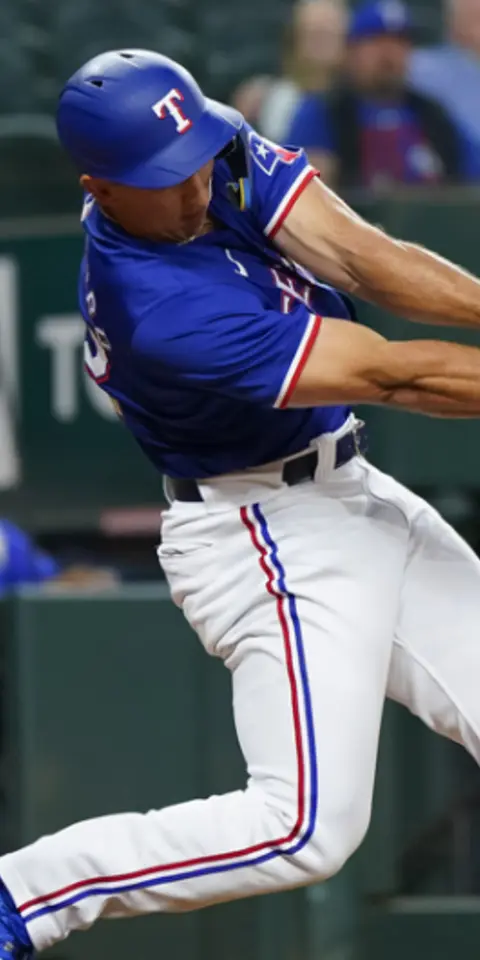I’m sure you’ve heard it before: “Spring training stats don’t matter.”
Yes, the World Series is won in October (or November), not March. But, there are still a few spring training stats that actually matter, for teams and players. Here are three of those spring training numbers you should care about this year for your futures bets, fantasy leagues, and MLB award picks:
Spring OPS matters for MVP Sluggers
An MVP season doesn’t just happen. Players don’t sleep all winter, roll out of bed for Opening Day and start mashing.
There’s a buildup, and for the best players in baseball, their MVP seasons start in the spring. The most recent AL and NL MVPs have all had spectacular spring training camps before their award-winning years. Last year, Ronald Acuna Jr.'s .921 spring OPS (which is still very good) was the lowest of any MVP winner in the last three years.
You have to go all the way back to Jose Altuve in 2017 to find a full-season MVP who posted a spring OPS below .800 before their big year. In 2024 spring training, a few MVP candidates with a high spring OPS are LA's Mookie Betts (1.086) and New York's Pete Alonso (.947).
| Year | League | Player | BA | OBP | SLG | OPS | HR | RBI |
|---|---|---|---|---|---|---|---|---|
| 2023 | AL | Shohei Ohtani* | .455 | .538 | .636 | 1.174 | 0 | 0 |
| 2023 | NL | Ronald Acuna Jr. | .313 | .421 | .500 | .921 | 1 | 3 |
| 2022 | AL | Aaron Judge | .406 | .472 | .875 | 1.347 | 4 | 7 |
| 2022 | NL | Paul Goldschmidt | .500 | .538 | 1.091 | 1.629 | 4 | 7 |
| 2021 | AL | Shohei Ohtani* | .280 | .471 | .720 | 1.191 | 3 | 7 |
| 2021 | NL | Bryce Harper | .400 | .432 | 1.143 | 1.575 | 8 | 14 |
*Also a pitcher
Are Spring Training Wins Predictive?
There’s nothing seemingly more meaningless in baseball than spring training wins and losses. The regulars come out by the fifth inning, games end in ties, and innings can end without three outs even being recorded.
But recent World Series champs have found some game success in the spring, too. In the last 15 seasons, only four eventual MLB champions have posted records below .500 in spring training. And in the last five years, the Texas Rangers are the only ones that went on to win the title that didn't post at least an 86-win pace in spring.
| Year | Team | Spring Record (W%) |
|---|---|---|
| 2023 | Texas Rangers | 13-15 (.464) |
| 2022 | Houston Astros | 8-5 (.615) |
| 2021 | Atlanta Braves | 15-13 (.536) |
| 2020 | Los Angeles Dodgers | 13-7 (.650) |
| 2019 | Washington Nationals | 17-12 (.586) |
One potential cause for this success carrying over from spring to the regular season is the importance of depth in modern baseball. Teams regularly use 10 to 15 starting pitchers during the season these days, and spring is a time when that pitching depth is on full display. If you’re hucking out a hurler in the eighth inning of a spring training game who carves, that probably means you’re set up with good depth for the season.
This trend isn’t a great sign for 2024 World Series hopefuls like the Padres (9-10), Phillies (9-15), and Blue Jays (13-17), who all posted spring records below .500.
Opponent Quality Is Key
Every season, there are young prospects and potential breakouts who post gaudy spring numbers. But one key to evaluating that March stat line is the opponents they're doing it against.
Baseball-Reference has a metric to help with that evaluation called opponent quality. Ranked on a scale of 1 to 10, the number lets you know if players hit against Single-A pitchers, high-minors competition or all big leaguers. Even the best players match up against some minor-league players this time of year, so it’s rare to see ratings above 8 or 9 (with 10 being the highest).
Opponent quality is one reason I’m so high on Rangers prospect Wyatt Langford. The Texas slugger posted one of the best spring slash lines, hitting .375 with six homers in 63 plate appearances. His 1.161 OPS was one of the best in the Cactus League. But, most importantly, that production came against a 7.8 ranked opponent quality, meaning Langford was mashing against high-minor pitching and big leaguers, too.
Wyatt Langford has been RAKING this Spring pic.twitter.com/RvyxruZZUr
— Talkin’ Baseball (@TalkinBaseball_) March 20, 2024
Langford will DH and play some outfield for the Rangers to start the season, hitting in the middle of one of baseball's best lineups. There's a reason he's the current favorite in AL Rookie of the Year odds.




